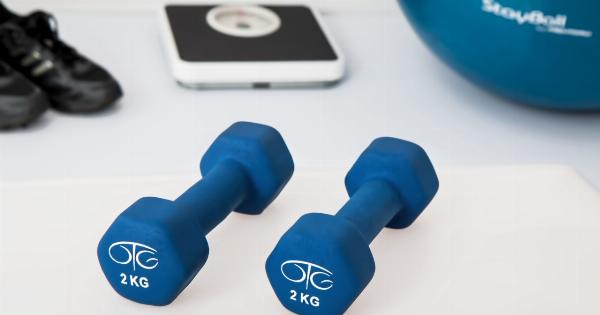A stroke is a serious medical condition that occurs when blood flow to the brain is interrupted, resulting in damage to brain cells.
This can lead to a wide range of physical and cognitive impairments, making it imperative to receive prompt medical attention and treatment. The costs associated with stroke care can be substantial, and that is where insurance comes into play. In this article, we will explore what insurance can cover for your stroke and how it can help alleviate the financial burden.
1. Medical Expenses
One of the primary aspects insurance covers for your stroke is the extensive medical expenses involved in diagnosis, treatment, and recovery. This includes but is not limited to:.
– Emergency medical services and transportation to the hospital.
– Diagnostic tests such as computed tomography (CT) scans, magnetic resonance imaging (MRI), and blood tests to determine the type and severity of the stroke.
– Hospitalization costs, including room charges, nursing care, and medication.
– Surgical procedures, if necessary, such as clot removal or repair of blood vessels.
– Rehabilitation and therapy sessions like physiotherapy, speech therapy, and occupational therapy.
– Prescription medications, both during the initial phase and for long-term management.
2. Doctor Consultations
Insurance also covers the expenses associated with consulting various medical professionals throughout your stroke journey. This includes:.
– Neurologists who specialize in stroke diagnosis and treatment.
– Physiatrists who focus on rehabilitation and managing the physical aspects of stroke recovery.
– Physical therapists, speech therapists, and occupational therapists who aid in recovery and rehabilitation.
– Psychologists and counselors who assist with emotional and psychological support during the recovery process.
3. Assistive Devices and Home Modifications
Many stroke survivors require assistive devices and modifications to their homes to enhance their independence and overall quality of life. Insurance can help cover the costs related to:.
– Mobility aids such as wheelchairs, walkers, and canes.
– Communication devices for individuals who face speech difficulties post-stroke.
– Home modifications like ramps, grab bars, and widened doorways to improve accessibility.
– Adaptive equipment for activities of daily living, such as specialized utensils and bathing aids.
4. Nursing Care and Home Health Services
For individuals who require ongoing care due to the effects of stroke, insurance can cover the expenses associated with nursing care and home health services. These may include:.
– Skilled nursing care provided by registered nurses or licensed practical nurses.
– Assistance with personal care, such as bathing, grooming, and dressing.
– Medication management and administration.
– Physical and occupational therapy provided in the comfort of your own home.
– Speech therapy to improve communication and swallowing abilities.
5. Reintegration Programs
Stroke recovery often involves relearning certain skills and reintegrating back into the community. Insurance can assist with the costs of:.
– Day rehabilitation programs or outpatient rehabilitation services to aid in physical and cognitive recovery.
– Vocational rehabilitation to help stroke survivors regain employment or acquire new job skills.
– Supportive programs that focus on socialization and community reintegration.
6. Long-Term Care Facilities
In cases where stroke survivors require long-term care due to severe impairments, insurance may cover the expenses associated with:.
– Assisted living facilities that provide personal care and supervision for individuals who can no longer live independently.
– Skilled nursing facilities that offer 24-hour medical care and assistance for complex medical needs.
– Memory care units for individuals who develop dementia or memory-related issues after a stroke.
7. Mental Health Services
Considering the significant psychological impact stroke can have on individuals, insurance can cover the expenses related to mental health services:.
– Counseling or psychotherapy to address anxiety, depression, and other mental health concerns.
– Cognitive behavioral therapy to aid in coping with cognitive impairments resulting from stroke.
– Support groups or community programs that provide emotional support and a sense of belonging.
8. Preventive Care and Medications
Insurance plays a crucial role in covering preventive care and medications to minimize the risk of recurrent strokes. This may include:.
– Regular check-ups and screenings to monitor blood pressure, cholesterol levels, and other stroke risk factors.
– Medications to manage various health conditions that increase the risk of stroke, such as hypertension or diabetes.
– Blood-thinning medications (anticoagulants) to prevent the formation of blood clots.
– Cholesterol-lowering medications to reduce the accumulation of plaques in blood vessels.
9. Travel Insurance for Stroke Survivors
For stroke survivors who wish to travel and maintain their independence, travel insurance can provide coverage for:.
– Emergency medical services and hospitalization costs in case of a stroke or any other health-related emergencies while away from home.
– Cancellation or interruption of trips due to unforeseen medical circumstances.
– Repatriation to return home safely in case of a medical emergency during travel.
10. Coverage for Caregivers
Insurance may also extend coverage to caregivers who play a vital role in supporting stroke survivors. This coverage can include:.
– Respite care services to provide caregivers with temporary relief and time for self-care.
– Counseling or therapy sessions to address caregiver stress, burnout, and mental health concerns.
– Training programs or support groups specifically designed for stroke caregivers.




























